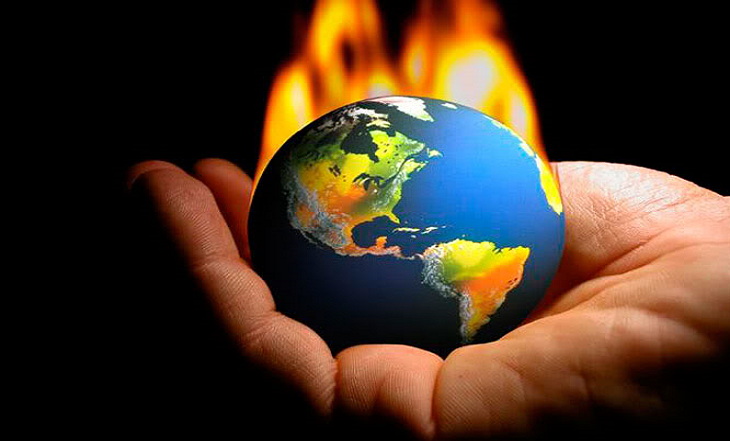
By 2030 Net Kashmir Temperature Rise By 2 Degrees
Due to global warming many places in India having a worrying scenario as the temperature is increasing day by day. An official reports have revealed that the net temperature in Kashmir is likely to go up by two degree Celsius by 2030. The experts also said that “the variation in climatic conditions will have “catastrophic effect in the region.”

The Jammu and Kashmir State Action Plan on Climate Change—prepared by the Climate Change Cell of the State government—states that Kashmir is “heading for the peculiar climatic scenario with net temperature going up, while the winter months will witness dip in temperature by around 2.6 degree Celsius.” The Cell also states that the annual temperature is projected to increase from 0.9 +/- 0.6 degree Celsius to 2.6 +/- 0.7degree Celsius by 2030.
The report adds that the temperature in winter months will come down. “However, one simulation shows a decrease by 2.6 degree Celsius in October, November and December. The net increase in temperatures ranges from 1.7 to 2.2 degree Celsius with respect to 1970s.” The report, while quoting Snow and Avalanche Study Establishment (SASE) report, states that Himalayan region has already grown warmer by 2.2 degree Celsius in the last two decades.
It also said that the “Climate profile of J&K indicates variation in climate characteristics over the years. There is the increase in average temperature in Jammu & Kashmir. Kashmir valley has shown the rise of 1.45 degree Celsius and Jammu region 2.32 degree Celsius over the last two decades and the climate change would have “drastic impact on hydropower generation capacity in J&K.”
“The climate change might impact hydropower generation in three possible ways. Firstly, the available discharge of a river may change since hydrology is usually related to local weather conditions, such as temperature and precipitation in the catchment area. Secondly, an unexpected increase in climate variability may trigger extreme climate events, i.e. floods and droughts, and thirdly, changing hydrology and possible extreme events may increase sediment risks,” the government report mentions.
The report says “studies conducted during the past three decades by the National Institute of Hydrology Roorkee reveal that glaciers in Ladakh, Zanskar and the Great Himalayan ranges of Jammu and Kashmir are generally receding, and the glacier volume change ranges between 3.6 percent and 97 percent, with majority of glaciers showing a degradation of 17 percent to 25 percent”.
It further adds that “The 23-km Drang-Drung glacier in Zanskar valley is highly affected by western disturbances (ablation rate variations between 0.75 cm/day and 2.67 m/day during July and August).” The action plan says that the maximum temperature is increasing by 0.5 Degree Celsius per year in Kashmir valley.
“In Jammu region, maximum temperature has risen by 0.08 degree Celsius per year. The temperature in Himalayan region has risen by 1 degree Celsius since 1970s. Between 1901 and 1996, rainfall has shown a huge variation Kashmir Valley by declining considerably,” it says.
“With the reduction in rainfall and increase in the net temperature, the rain-fed agriculture will suffer the most. Horticultural crops like apple are also showing decline in production and a real coverage particularly due to decline in snowfall. Also, the temperature increase would be largely due to emissions of CO2, methane and other greenhouse gases”.
A senior official of Climate Change Cell told that the increase in temperature will have th severe impact on agriculture and horticulture sectors.
“There is a need to create awareness among masses about these issues as they are important for our future. The government has to strictly implement guidelines to reduce the emission of CO2 which is a major cause of increasing temperature,” he said. “It should also ban the burning of leaves and other things in open as it contributes to the increase in temperature.”